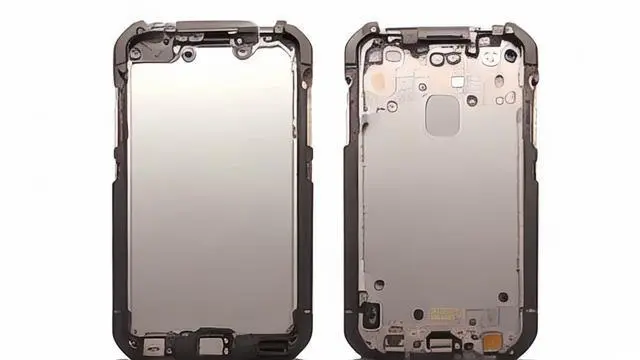Manufacturers and consumers prefer aluminum alloy casings for their great mechanical qualities and gorgeous style in contemporary smartphone construction. Different sophisticated procedures are used in the production process, each of which has to be exactly regulated to guarantee the quality of the finished product. Aluminum alloy phone cases are produced here in great detail from raw materials to finished goods.
Materials Selection and Pre-treatment
Making premium phone covers starts with choosing the correct aluminum alloy material. Aluminum alloys come in many varieties with varied uses. Manufacturers must decide on the metal kind that will fit the phone case’s requirements most precisely. Some alloys, for instance, have stronger strength or hardness or corrosion resistance, which would be appropriate for phone cases that may be subjected to hostile surroundings.
Following material selection, required pre-treatment including solution treatment or annealing removes internal tensions and increases machinability. Furthermore, the material surface has to be cleaned to eliminate grease and contaminants, thereby guaranteeing the finest processing results in next stages.
die casting technique
Main manufacturing techniques for aluminum alloy phone casings are die casting. The aluminum alloy is heated in this method to a liquid form then rapidly injected under high pressure into an exact mold. Die casting can rapidly create intricate, dimensionally correct parts, hence this approach is appropriate for manufacturing many standardized phone cases.
As the die casting process directly influences the quality and surface smoothness of the casting, temperature and pressure control is absolutely vital. Often utilized in die casting machines, vacuum or gas-assisted die casting methods help to increase the yield rate and lower porosity and internal flaws.
Machining CNC
While die casting can provide a form close to the final product, more sophisticated detail handling and greater accuracy frequently depend on subsequent machining. To cut, drill, and mill the aluminum casing, CNC machines precisely move cutting tools according to a predefined program, producing specific features including button holes and camera openings.
CNC machining not only improves the product’s accuracy but also makes more varied designs possible, therefore satisfying the need for unique high-end phones. Furthermore, CNC machining can provide original textures or patterns on the metal surface, therefore improving the phone’s look and feel.
Techniques of Surface Treatment
Improving the look and durability of aluminum alloy phone cases depends mostly on surface treatment. One of the most often used surface treatment techniques is anodizing, which by an electrochemical reaction generates a thick, hard oxide coating on the aluminum surface. By adding various dyes, this layer not only increases the case’s wear resistance and corrosion resistance but also can produce a range of hues.
Apart from anodizing, sandblasting, electroplating, and painting constitute further surface treatment techniques. While electroplating generates a metal film on the phone case, adding more decorative aspects and protection, sandblasting gives a consistent matte surface, therefore increasing the feel.
Assembly and Quality Control The phone cover still has to be built and subjected to quality control following all the preceding procedures. The aluminum case is put together with the internal components of the phone during assembly to guarantee that every component fits exactly and that the functioning interfaces and buttons.
Strict quality inspections covering dimensional correctness, appearance, and functioning tests follow every manufacturing stage. Products that satisfy all quality criteria are packed and put on sale.
In summary
Aluminum alloy phone cases are produced using a procedure that fully employs several materials science and precision engineering technologies. From material selection to die casting, CNC machining, and painstaking surface treatment to rigorous quality control, every stage captures the manufacturing sector’s quest of detail and excellence. These manufacturing methods will keep being improved as technology develops to satisfy consumers’ expectations for phone performance and appearance as well as to fulfill the rising market demand.
Concerning Honjenny
Honjenny, a 1996-founded global producer of precision metal parts, With an eye toward zinc alloy and aluminum alloy die casting technologies, Honjenny provides strong solutions for sectors including home hardware, consumer electronics, perfume caps, and more. If you are seeking a producer of aluminum alloy phone cases, give Honjenny some thought.
